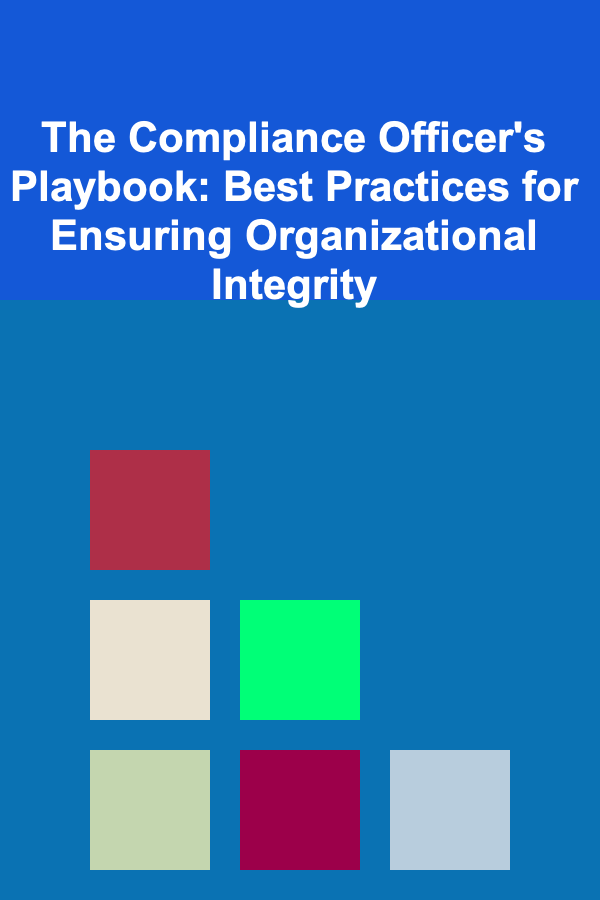
What to Do if You're Overqualified for the Job You Want
ebook include PDF & Audio bundle (Micro Guide)
$12.99$5.99
Limited Time Offer! Order within the next:

Finding the right job can be a challenging process, especially when you find yourself in a situation where you're overqualified for the position you're interested in. Being overqualified can seem like both a blessing and a curse. On one hand, you may have more skills and experience than the job requires, but on the other hand, it can raise concerns for employers. The prospect of hiring someone overqualified often triggers doubts about job satisfaction, retention, and alignment with long-term goals.
If you find yourself in this situation, it's important to approach it strategically. This guide will offer actionable steps to help you navigate the challenges of being overqualified for the job you want and ensure that both you and your potential employer find the best path forward.
Understand Why You're Interested in the Role
Before you can address the issue of being overqualified, it's essential to understand why you're pursuing this job in the first place. Reflect on the specific reasons that make this opportunity appealing to you.
- Desire for a Change: Maybe you're looking for a career change, and this job offers a chance to work in a new field or environment.
- Work-Life Balance: If the role offers more predictable hours or less stress, it might be the flexibility you're seeking.
- Personal Fulfillment: Perhaps you're passionate about the company or the type of work, and you believe this position will bring you satisfaction that other, higher-level roles cannot offer.
- Geographic Relocation: You may be seeking a job in a new location, and this role fits your needs despite your higher qualifications.
Understanding your motivation will help you tailor your approach and convey a genuine interest in the position to the hiring manager.
Anticipate Employer Concerns and Address Them Head-On
One of the primary reasons hiring managers hesitate to offer a position to someone overqualified is the concern that they might not stay in the role long-term. Employers worry that you'll quickly get bored, feel undervalued, or leave for a higher-level position once one comes along. It's essential to address these concerns directly in your application, interview, or cover letter.
A. Reassure Employers About Long-Term Commitment
You need to demonstrate that you're genuinely interested in the role for reasons beyond just filling a gap between higher-level positions. Here's how you can address these concerns:
- Clarify Your Intentions: Explain why this position aligns with your current goals, emphasizing your long-term commitment. Mention how the job fits into your personal or professional aspirations and how it offers the stability or satisfaction you need at this stage of your career.
- Highlight Adaptability: Emphasize your ability to thrive in a role that may not tap into all your previous experiences. Show how your skills will allow you to excel in the position while still feeling challenged and fulfilled.
- Be Honest About Your Future Goals: If the role represents a stepping stone for you, be transparent. However, assure the employer that you plan to stay for a reasonable period and that you won't jump ship as soon as a more senior role becomes available. Show that you're not just filling time but pursuing meaningful work.
B. Address Salary Concerns
When you're overqualified, your salary expectations may be much higher than the role's budget. Employers might assume that offering the position at a lower salary will lead to dissatisfaction or turnover. Here's how to handle it:
- Be Flexible with Compensation: If you're open to negotiating the salary, make that clear. Be prepared to justify why you're willing to accept a lower salary based on your desire for the role and your long-term goals.
- Focus on Non-Monetary Benefits: Highlight that you're also interested in other benefits, such as professional development opportunities, work-life balance, or the chance to learn new skills. These factors can make the position more appealing and help compensate for a lower salary.
Leverage Your Overqualified Status as a Strength
While being overqualified can seem like a disadvantage, it actually provides many opportunities to bring additional value to the company. Here's how to position your experience as an asset:
A. Showcase Your Expertise
Your experience can be a significant advantage in the role. Highlight how your background can help the company improve processes, mentor colleagues, or provide insights that others may lack. Emphasize that your experience doesn't make you less suitable for the job; instead, it can make you a stronger asset for the organization.
- Mentorship and Leadership: If you have experience in higher-level positions, offer to mentor junior colleagues or take on a leadership role in projects. This shows that you're not only capable but also willing to contribute to the development of others.
- Problem-Solving and Efficiency: With your experience, you may be able to solve problems faster, make better decisions, and streamline workflows. Make sure to highlight these skills in your cover letter or during interviews.
B. Demonstrate Your Value Beyond the Role
Even though the job might not require your full skill set, it doesn't mean you should hold back. Think about how your diverse experience can positively impact the organization in the long term.
- Initiate Improvements: Share examples of how you've implemented improvements or changes in previous roles. You might be able to bring innovative ideas to the organization that others may not consider.
- Diverse Skill Set: Offer your expertise in areas that aren't strictly part of the job description. For example, if the position is in sales but you have a background in marketing, propose ways to integrate the two areas to help the company grow.
Tailor Your Resume and Cover Letter Appropriately
When you apply for a role where you're overqualified, your resume and cover letter should be tailored specifically to the position. Here are some tips:
A. Focus on Relevant Experience
Rather than listing all your accomplishments, focus on the skills and experiences most relevant to the job you're applying for. Tailor your resume to emphasize your ability to perform well in the specific role while downplaying aspects of your background that might make you seem overqualified.
B. Simplify Your Job Titles
If your previous positions included titles that seem too senior for the job you're applying for, consider adjusting the job titles slightly or removing them altogether. Focus on the duties you performed and the results you achieved rather than the title itself.
C. Explain Your Motivation in the Cover Letter
Your cover letter provides the perfect opportunity to explain why you're applying for a position that might seem beneath your qualifications. Be sincere and clear about your reasons for pursuing the role, and emphasize your enthusiasm for the job despite being overqualified.
Prepare for the Interview
In the interview, the topic of being overqualified will almost certainly come up. It's important to be prepared to address this concern and turn it into a positive aspect of your candidacy.
A. Be Honest and Transparent
If asked directly why you're interested in a position where you're overqualified, be honest. Explain your reasons clearly and with enthusiasm, focusing on how the role fits into your current career goals and life situation.
B. Avoid Coming Across as Desperate
While you should explain your reasons for applying, be careful not to sound desperate. Employers want to hire someone who is genuinely interested in the role and the company---not just looking for any job to fill the gap.
C. Stay Confident in Your Abilities
Don't downplay your achievements. Acknowledge that you bring a wealth of experience to the table, but focus on how that experience can contribute to the success of the organization and help you excel in the role. Confidence in your abilities can reassure employers that you are the right candidate.
Evaluate the Role Carefully
If you're applying for a job that you're overqualified for, you should carefully evaluate the role before accepting an offer. Ask yourself:
- Will this role fulfill my career goals and personal aspirations?
- Is the company culture a good fit for me?
- Do I feel I can make a positive impact in this position?
- Are there opportunities for growth and development, even if they're not immediately apparent?
Being overqualified doesn't mean the job isn't a good fit for you---it simply means that you need to make sure it aligns with your needs and goals in a meaningful way.
Conclusion
Being overqualified for a job doesn't have to be a barrier. In fact, it can be an advantage if you know how to present your skills and experience in a way that demonstrates value. By addressing potential employer concerns, leveraging your expertise, and clearly articulating why the role fits into your life plan, you can make the case that you're not only the right person for the job but also someone who will thrive in it.
Whether you're looking for a career change, better work-life balance, or simply a role that brings you more satisfaction, there are ways to make your overqualification work in your favor. With the right mindset and approach, you can successfully navigate the job market and secure the position that truly aligns with your goals.

Becoming a Graphic Design Specialist: Key Skills for Impactful Visual Communication
Read More
How to Save for a Home Renovation While Sticking to a Budget
Read More
How to Store Seasonal Items to Free Up Space
Read More
How to Transform Your Space with Smart Storage Solutions
Read More
The Compliance Officer's Playbook: Best Practices for Ensuring Organizational Integrity
Read More10 Tips for Using a 529 Contribution Tracker to Maximize Tax Benefits
Read MoreOther Products

Becoming a Graphic Design Specialist: Key Skills for Impactful Visual Communication
Read More
How to Save for a Home Renovation While Sticking to a Budget
Read More
How to Store Seasonal Items to Free Up Space
Read More
How to Transform Your Space with Smart Storage Solutions
Read More